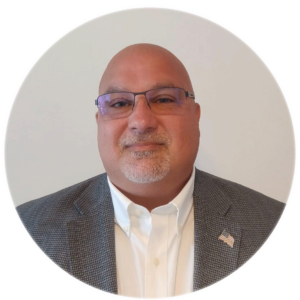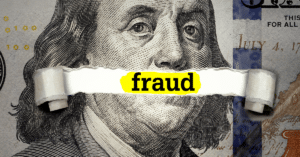Have you ever noticed something unusual in your workplace regarding hospice care or billing practices? Perhaps certain patients seem to receive services that don’t quite match their needs, or the paperwork raised questions about the care they’re really entitled to. Hospice fraud not only harms patients, but also betrays the trust placed in the entire healthcare system.
If you’re a medical professional, whether you’re a medical biller, medical coder, case manager, nurse, or caregiver, you might be the first to spot irregularities in hospice and home care services. Understanding what hospice fraud is and recognizing its warning signs can empower you to take action.
This guide will define hospice fraud, provide examples of common schemes, and support you with actionable steps to take when you suspect something isn’t right.
What Is Hospice Fraud?
Hospice fraud involves exploiting Medicare benefits through false claims, inappropriate billing, or enrolling patients who are not terminally ill in hospice care to improperly claim funds.
This misuse of resources can harm patients and families already facing difficult circumstances, with fraudulent claims often involving unnecessary services, inflated levels of care, or treatments never provided.
Hospice fraud has two main effects. First, it places a huge financial burden on healthcare systems. Government programs like Medicare lose billions of dollars every year to fraudulent claims.
Second, it creates ethical dilemmas that can severely harm vulnerable patients and families. Resources that could have gone toward providing quality care are instead wasted or directed into unethical channels.
Top Examples of Hospice and Home Care Fraud
To better equip yourself with the knowledge to identify fraud while at work, here are some of the most common ways it happens in hospice and home care fraud scenarios:
- Fraudulent Patient Enrollment. Hospice providers sometimes enroll patients who are not terminally ill—meaning they don’t meet Medicare’s criteria for hospice eligibility—to unlawfully claim benefits.
- Billing for Higher Levels of Care. Some providers overcharge by claiming they provided more expensive services like crisis care, even when only routine care was given.
- Incentives and Kickbacks. Illegal payments or incentives could be offered to physicians, referral agencies, or nursing homes to improperly funnel patients into hospice care programs that might not be medically necessary.
- High-Pressure Marketing Tactics. Certain providers use aggressive tactics to push vulnerable patients or families in settings like assisted living facilities into care agreements that aren’t necessary or beneficial.
- Providing Non-Covered Benefits. Perks like housekeeping services or gifts are sometimes offered to patients as an incentive to enroll in hospice care. These practices violate Medicare rules and create compliance risks.
- Failing to Obtain Physician Certification on a Plan of Care. Medicare requires proper physician documentation certifying that a patient qualifies for hospice. Forgoing this step, or fabricating the documentation, leads to fraudulent billing practices.
- Providing Inadequate Services or Less Weekend Care. Some organizations cut corners by short-staffing weekends or offering subpar care to patients during off-hours, all while continuing to bill Medicare for full services.
By familiarizing yourself with these examples, you’ll be better prepared to spot potential healthcare fraud. And if you do, know that stepping forward is a vital act that helps preserve the integrity of care and protects the system for those who truly need it.
What to Do If You Suspect Hospice Fraud
Seeing signs of hospice fraud or palliative care fraud doesn’t mean you’re alone in taking the next steps. The process of reporting fraud is secure, confidential, and guided by experts. Here’s how you can approach it:
Step 1: Recognize the Signs
Red flags include recurring patterns of premature hospice certifications, billing inconsistencies that don’t match observed care provided, or high-pressure tactics targeting patients and families.
Step 2: Document Evidence
If you can, keep a record of any patient care logs, fraudulent billing documents, or communications that raise suspicion. Having clear evidence strengthens your case and helps investigators act with precision.
Step 3: Maintain Confidentiality
Don’t discuss your suspicions with coworkers or third parties. Keeping the matter confidential ensures the integrity of any investigations. Speaking with an experienced whistleblower attorney is the safest way to get advice on next steps.
Step 4: Contact a Whistleblower Law Firm
When you reach out to experts like DJO Whistleblower Law Firm, you’ll get professional guidance on how to report fraud responsibly and in a way that protects your rights. Our team specializes in safeguarding whistleblowers and ensuring reports are handled accurately.
Step 5: Act Quickly
An important factor in any whistleblower case is to contact a law firm quickly. Under the False Claims Act, those who file correctly are eligible for significant rewards of up to 30% of any funds recovered by the government. Acting swiftly can also minimize further harm caused by the fraud.
Why Reporting Matters
When you take a stand against hospice fraud, you’re improving care for patients, protecting the Medicaid and Medicare systems, and ensuring a fair playing field for honest providers.
We understand that making the decision to report can feel overwhelming. But with trusted legal advisors by your side, you can proceed with clarity, confidence, and full protection under whistleblower laws.
Take a Stand Against Hospice Fraud
Hospice fraud, home care fraud, and unethical practices in palliative care fraud undermine the core of what healthcare stands for—serving people with dignity and integrity. By recognizing the warning signs and taking steps to report these behaviors, you become part of the solution.
If you’ve witnessed or suspect hospice fraud in your workplace, contact DJO Whistleblower Law Firm for a free, confidential consultation. With support from seasoned whistleblower experts and attorneys, you can protect patient care, recover stolen taxpayer funds, and even earn a financial reward for your bravery.
Don’t hesitate—contact us today to help us build a better, more ethical healthcare system for everyone.

authored by Christopher J. Piacentile
Director of Investigations DJO Whistleblower Law Group


